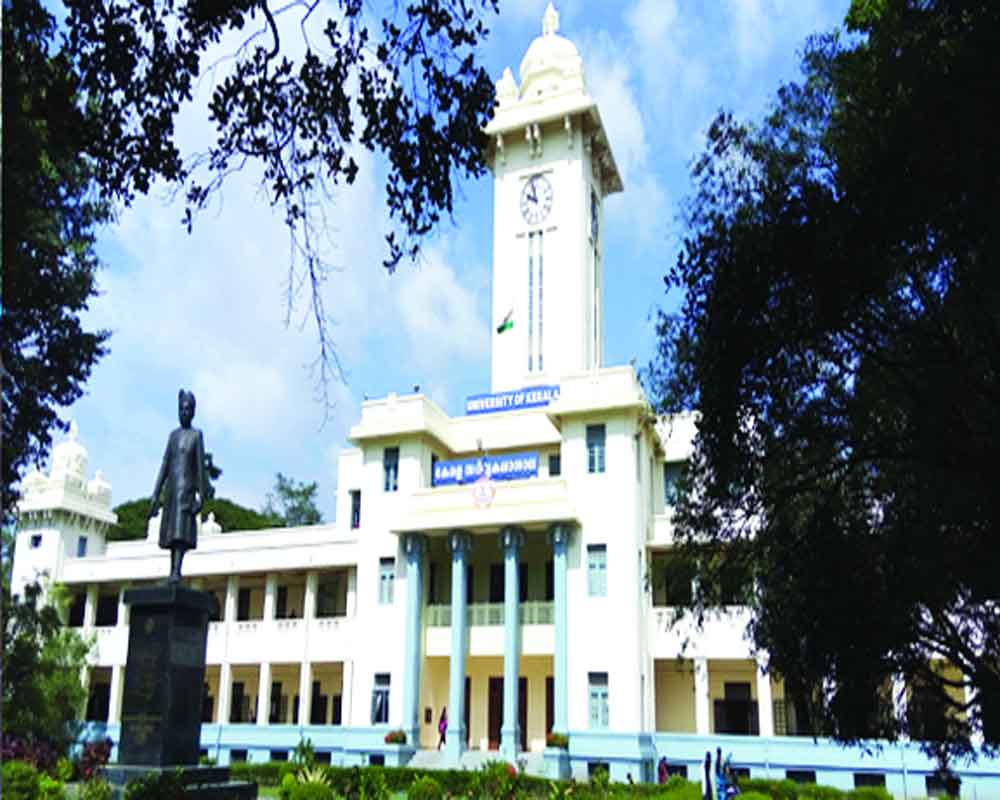The death of a Kerala university student sheds light on the alarming state of affairs within Kerala’s educational institutes
The recent suspension of PC Saseendran, Vice-Chancellor of Kerala Veterinary and Agricultural Sciences University in Wayanad, by Governor Arif Mohammed Khan marks a significant event in the state's history. This action, prompted by the mysterious death of a second-year BV Sc student, is unprecedented, particularly given the dominant presence of the CPI(M) in Kerala's political landscape.
The student in question, JS Sidharth, was described as apolitical and amicable towards his peers. However, his participation in a dance with a Muslim female student on February 14th incurred the disapproval of certain community members. The Students Federation of India (SFI), the university's sole student organisation, conducted a secretive trial during late-night hours, subjecting Sidharth to brutal assault and torture. Tragically, Sidharth was found dead in his hostel's washroom shortly afterward, revealing the harrowing experience he endured.
In the aftermath, the Vice-Chancellor and the Dean hastily attributed Sidharth's death to academic pressures, dismissing any suspicion of foul play and absolving the SFI of any wrongdoing. This response is consistent with the CPI(M)'s tendency to manipulate narratives to suit its interests.
Just before Sidharth's death, colleagues recount a vicious attack that preceded his demise, suggesting a premeditated assault. The political manoeuvring within Kerala's academic institutions extends to the appointment of officials, with CPI(M) loyalists often favoured despite legal objections. This was evident in the nullification of Gopinath Raveendran's appointment as vice-chancellor of Kannur University by the Supreme Court.
The Kerala Police, known for its efficiency, faces constraints imposed by party directives, hindering impartial investigations into incidents involving SFI members. The SFI's notoriety for violence and intimidation, including the murder of ABVP activists in 1996, underscores its unchecked influence.
The convergence of extremist ideologies within CPI(M)-affiliated groups further complicates the situation, with organisations like SIMI and Popular Front of India finding refuge and wielding influence within student politics. This nexus fosters an environment of religious policing and intolerance, with dissent often met with aggression.
Instances of SFI members promoting illicit activities, such as drug use, highlight the erosion of academic values and institutional integrity. Principals who challenge such behaviour face retaliation, exposing the pervasive influence wielded by SFI leaders.
The SFI, once a symbol of student activism, has devolved into a vehicle for promoting vice rather than virtue.
Ultimately, the sanctity of the student-teacher relationship and the moral fabric of educational institutions are at stake. It is imperative to uphold the principles of education and integrity, as espoused in the age-old adage, "Guru Brahma, Gurur Vishnu, Gurur Devo Maheswara, Gurur Sakshaat Parabrahma, Tasmai Shri Guruve Namaha."
In conclusion, the suspension of Vice-Chancellor PC Saseendran signifies a critical juncture in Kerala's academic and political landscape, underscoring the need for accountability, integrity, and the preservation of educational values.
The situation extends beyond Kerala's borders, infiltrating prestigious institutions. Despite their reputation for academic excellence, these institutions are not immune to political interference and student unrest. This necessitates a concerted effort to root out corruption, nepotism, and ideological bias, fostering an environment conducive to learning, critical inquiry, and academic integrity. Only then can these institutions fulfill their potential as engines of national progress and social transformation.
(The writer is special correspondent with the Pioneer, views are personal)


























